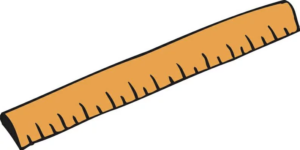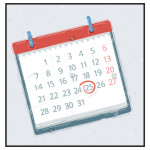
How healthy is your retirement?
JACQUELINE KOVACS wrote a column in the Toronto Star recently [ Feb 11, 2017 ] where she wrote about some home health tests which can help determine what physical shape you are in.

Wondering just how healthy you are for your retirement years? Get a grip. Seriously. A 2015 study out of Hamilton’s McMaster University found grip strength was a strong indicator of how likely you are to have a heart attack, stroke or premature death.
Health test #1 : Grip test
[ cannot be done at home as a dynamometer is needed ]
“They looked at about 140,000 people and measured grip strength based on a little meter called a dynamometer,” explains Dr. Peter Lin, director of primary care initiatives at The Canadian Heart Research Centre in Toronto. “It doesn’t mean that if you have a weak grip you’re going to die. But people with a weak grip are probably older, frailer, maybe are lacking good nutrition. It kind of makes sense.”
Measuring your grip or that of an older relative is just one health test you can try at home. As with any self-screen, it’s not a diagnosis, but it is an indication that you should see your doctor. Here are some other at-home tests to consider.

Health test #2 : Get up and go
Sit in a chair, stand up, walk 10 feet forward, then turn around, walk back and sit down.
“It sounds simple,” says Lin, `but it tells us a lot. Do you have enough muscle strength to get up without using your arms? When you’re walking, are you steady or are you wobbly?”
When you turn around, are you losing balance?
“A lot of times in the kitchen or bathroom, you may just do a quick turn to grab something,” says Lin. “If you’re wobbly, imagine falling in a bathroom – there’s a lot of stuff you can hit.”
When you sit back down, are you able to use your muscles to actually lower yourself in a chair, or do you get to a point and then just kind of fall into the seat?
“We see a lot of elderly women who start to sit and then their muscles can’t hold them anymore and they just kind of go clunk,’ says Lin “So if we notice that they’re weak in any of those areas, we can think about grab bars in the bathroom, for instance, to help them get up.”

Health test #3 : The memory test
A lot of people tell doctors, “‘My memory is not so good,’ and some doctors say, ‘Well, you’re 80 so it’s OK,’ and we brush people off” says Lin.
“But often when memory gets bad, patients don’t notice it anymore – family members tend to mention it. So we need something quick and simple for people to screen it.”
Here’s Lin’s at-home memory test.
- Tell your relative three words – cat, ball, tree, for example – and get them to say the words back to you. Then you tell them you’re going to ask them to say the words again in a few minutes.
- Ask them to draw a clock that says 10 after 11. “It’s an abstract thing, so it’s a bit of a trick,” explains Lin. “People whose memory is failing will want to point the hands of the clock at 10 and 11, rather than at the 11 and the 2.” Look at how they’re drawing and organizing the clock. People with memory problems might make just a little circle or put the numbers just on one side.
- Ask them to tell you the three words again.
“If they blow all three words, the studies say there’s a good chance they have some type of dementia,” says Lin. “If you get all of them right, your memory is pretty good.” If you get one or two right, look at the clock. If it’s normal, you don’t have to worry right now, says Lin. If it’s abnormal and you only got one or two words, probably you need to get checked. When you do, bring the clock drawing to the doctor.
“The clock actually tests your planning – do you understand what a clock looks like, what does 10 after 11 look like and are your hands steady enough to draw something,” says Lin. “So it’s basically a very fast test to have a global check of your brain”

Health test #4 : The reflex test
Hold a yardstick, and note at what measurement point you are holding it. Then let go and grab it again, noting how many centimetres it took you to grab it. Then have your parent or relative do the same thing. “If you catch it within 10 cm and they catch it at, say, 50 cm, that means their reflexes are bad,” says Lin. “That can be a concern for people who are driving – are your reflexes fast enough?”
Lin stresses that “bad” results on any of these tests aren’t a diagnosis of anything. What they are is a strong message to bring your concerns to your doctor for further testing.





